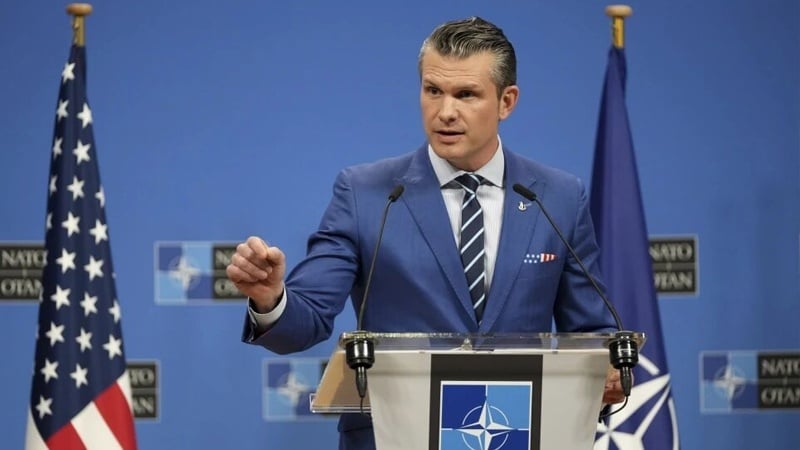Washington's worn-out trick: selling more arms to Asia by hyping China threat
-

US Secretary of Defense, Pete Hegseth
Pars Today - In remarks that indicate the United States’ goal to increase arms sales in Asia, the US Secretary of Defense claimed that America's Asian allies should increase their defense and military spending to threaten China.
According to Pars Today, quoting IRNA, US Defense Secretary Pete Hegseth warned on Saturday that the threat from China is real and imminent, urging US allies in the Indo-Pacific region to spend more on their defense needs.
Speaking for the first time at the Shangri-La Dialogue in Singapore, he emphasized that the Indo-Pacific region is a priority for the US President Donald Trump's administration.
In one of his strongest statements against China, Hegseth said: There's no reason to exaggerate. The threat China poses is real, and it could be imminent.
He added that any Chinese attempt to conquer Taiwan would lead to devastating consequences for the Indo-Pacific region and the world.
China considers Taiwan to be part of its territory and has vowed to "reunify" the self-governing island, by force if necessary. Beijing has also increased the number and intensity of military exercises around Taiwan.
The Taiwanese government rejects Beijing's sovereignty claims, asserting that only the people of the island can decide their future.
Hegseth said: It should be clear to everyone that Beijing is credibly preparing for the potential use of military force to shift the balance of power in the Indo-Pacific.
He had previously criticized the European allies for not spending more on their own defense. In February, at a press conference at NATO headquarters in Brussels, he warned Europe not to treat the US like a fool.
Meanwhile, French President Emmanuel Macron said on Friday, while speaking at the Shangri-La Dialogue, that Hegseth was right to call on Europe to increase its defense spending.
Although the US formally recognized the One China policy in 1979 under three official communiqués with Beijing and cut diplomatic ties with Taiwan, in recent years, US presidents have taken actions contrary to the One China policy, such as selling military weapons and establishing diplomatic exchanges with Taiwan, and are currently developing relations with the island.
AE/ME

